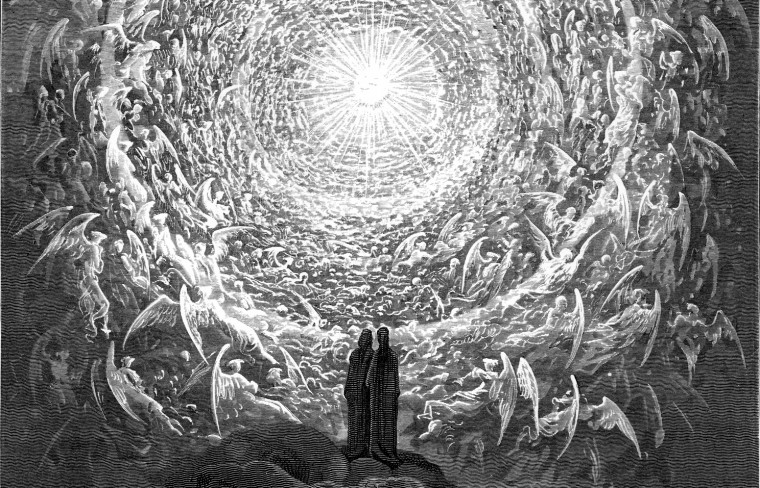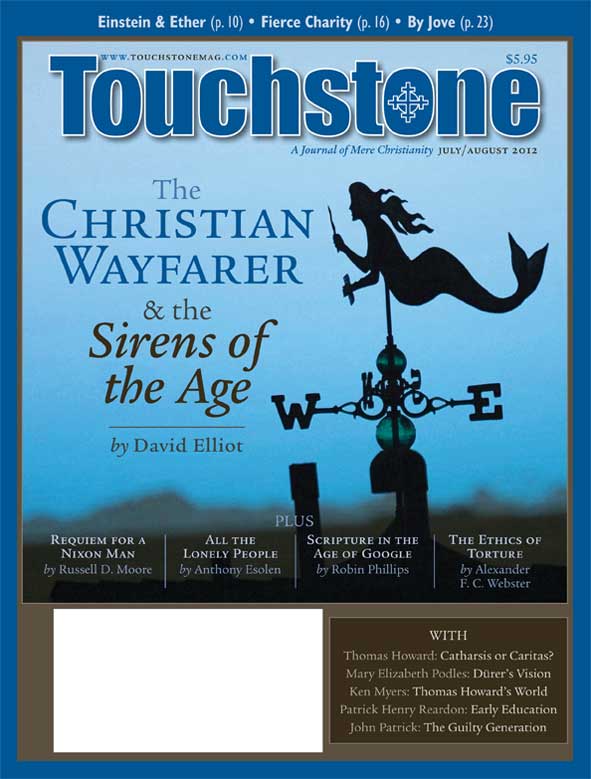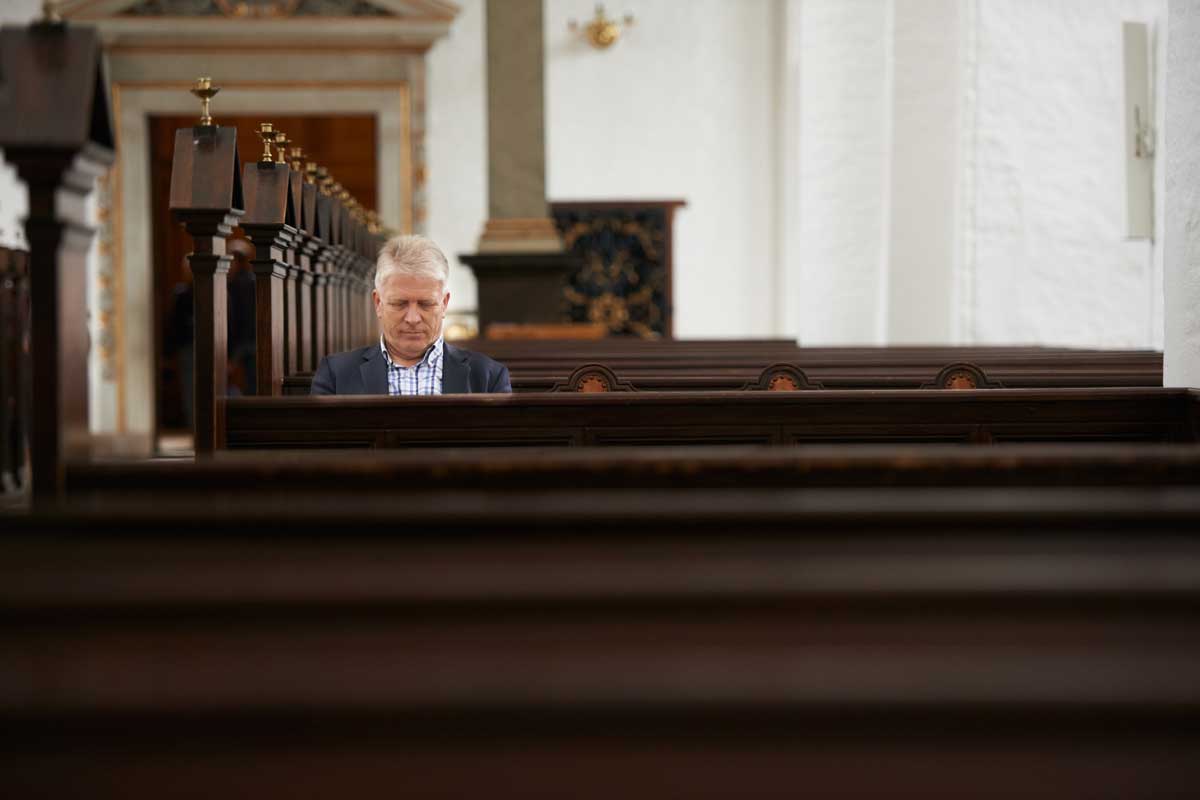Catharsis? Caritas!
Thomas Howard on the Crucial Limits of Art's Power to Transform
In the mid-1960s, when my wife and I lived in New York, I used to pop in to Lincoln Center to take in bits and pieces of the New York Film Festival. It was all terribly heady. One wanted to be at the cutting edge. Au courant, so to speak. (I was young.)
The then-prominent names among the directors were mostly foreign: Buñuel, Renoir, Truffaut, Bergman, Fellini, Antonioni; a lot of the films were black-and-white. One didn't really think of the festival as mere entertainment. It was serious stuff, one told oneself. And indeed it was, from a given point of view. The films constituted a keen index, as it were, of modern sensibility.
My most distinct memory of these occasions is of the cinema buffs' remarks as they tottered, all agog, back up the aisle and left the theatre. Great rhapsodic breathings. Gasps of incredulity. There's catharsis for you! Now I know what Aristotle meant. Heavy.
It all started a train of thought in me that goes on until this day. And I speak as one whose livelihood for over fifty years has been the teaching of belles lettres. The concerns in these two fields, literature (in my case, the teaching of English literature) and cinema, are virtually synonymous. Literature, film, drama, music, dance, painting, sculpture, architecture: these would constitute what we commonly call "the arts," and would themselves bespeak our awareness of the significance that seems to arch over our mortal affairs, and the immemorial human effort to find concrete shape for that awareness. Dogs don't write poems. Eagles don't come up with new choreography. Dugongs don't create operas. Such attempts seem to belong to our species alone.
And somehow such activities seem to lie very close to the center of human consciousness and aspiration—so close, in fact, that finding the exact threshold between the arts and religion is not always an easy undertaking, since both evince this rum and dogged awareness that won't leave us mortals alone. I am speaking, of course, of imagination, which insists on finding a palpable shape (incarnation, shall we say?) for its experience of existence, whereas ratiocination seeks to get things articulated in discursive, propositional terms. (The question of the shape taken by Reformed theology and spirituality, as distinct from the ancient Orthodox and Catholic outlook, looms at this point . . .)
Cleansed Sensibility
As I overheard the remarks on every side as we all left the theatre after those evenings, a piquant question began to suggest itself to me—piquant, since I was preparing for a career in teaching belles lettres, and might myself be called upon to reply to some student's views on a question I am about to raise in the following lines.
The word that stuck in my mind was catharsis. Rightly understood, of course, this refers to a cleansing, or purgation. Aristotle speaks of this.
So: a cleansing or purging of what, exactly?
If we mooted the question at, say, a round table, the participants being experts from the various arts and (perhaps more important) critics and philosophers of aesthetics whose particular concern was to locate the phenomenon of art among the truly serious human enterprises, we would find ourselves regaled with several points of view.
Thomas Howard taught for many years at St. John's Seminary College, the Roman Catholic seminary of the archdiocese of Boston. Among his many works are the books Christ the Tiger, Evangelical Is Not Enough, Lead Kindly Light, On Being Catholic, and The Secret of New York Revealed, and a videotape series of 13 lectures on "The Treasures of Catholicism" (all from Ignatius Press).
subscription options
Order
Print/Online Subscription

Get six issues (one year) of Touchstone PLUS full online access including pdf downloads for only $39.95. That's only $3.34 per month!
Order
Online Only
Subscription

Get a one-year full-access subscription to the Touchstone online archives for only $19.95. That's only $1.66 per month!
bulk subscriptions
Order Touchstone subscriptions in bulk and save $10 per sub! Each subscription includes 6 issues of Touchstone plus full online access to touchstonemag.com—including archives, videos, and pdf downloads of recent issues for only $29.95 each! Great for churches or study groups.
Transactions will be processed on a secure server.
more from the online archives
calling all readers
Please Donate
"There are magazines worth reading but few worth saving . . . Touchstone is just such a magazine."
—Alice von Hildebrand
"Here we do not concede one square millimeter of territory to falsehood, folly, contemporary sentimentality, or fashion. We speak the truth, and let God be our judge. . . . Touchstone is the one committedly Christian conservative journal."
—Anthony Esolen, Touchstone senior editor










